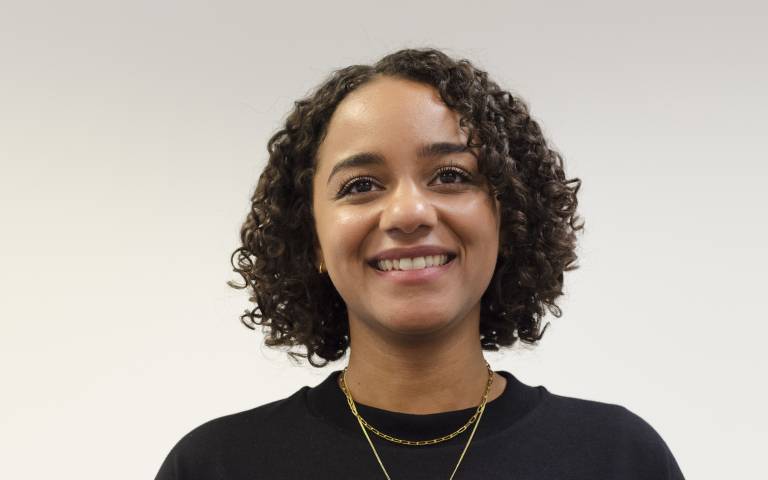After working as the Athena Swan Project Manager at the Institute of Ophthalmology (IoO) since 2019, Avili Feese has recently taken on the role of EDI Manager.

How long have you been in the Faculty of Brain Sciences and what is your current role?
I joined the faculty in 2019, as the Athena Swan Project Manager at the Institute of Ophthalmology (IoO). I have recently taken on the role of EDI Manager – very recently, I’ve only been in post a few weeks!
What motivated you to take on the role of EDI Manager for the Faculty?
The Faculty’s reputation for EDI extends beyond us, and when the opportunity arose to continue developing and delivering the EDI strategy, I couldn’t pass it up. I know how much value the faculty places on EDI, and which this is a real opportunity to make an impact in changing culture.
What are your aims in this role?
To build on the achievements in equity, diversity and inclusion at the faculty for both staff and students, while also raising the profile of the Centre for Equality Research in Brain Sciences. Learn more here!
What aspect of your work most excites you and why?
EDI is an ever-evolving field; there are always new opportunities and challenges to improving how we interact with and support each other, I’m constantly learning, through my own self-reflection and from the experiences of others, who so generously give their time and expertise to improving culture.
What working achievements are you most proud of?
While at IoO, I had the opportunity to work on and contribute to so many things: project managing the first Faculty Away Day for PS&T staff; achieving a Silver Athena Swan award at the IoO; providing free sanitary products – to name a few!
Tell us something interesting about yourself that people might not know
I come from a long line of dog people – my grandparents showed dogs, and everyone in my family has at least one dog now. I personally have two: an Italian Greyhound, and a Dandie Dinmont Terrier – a native Scottish breed so uncommon they’re at risk of disappearing.
What’s the best advice you would give your younger self?
It’s ok to never figure it all out.
 Close
Close

